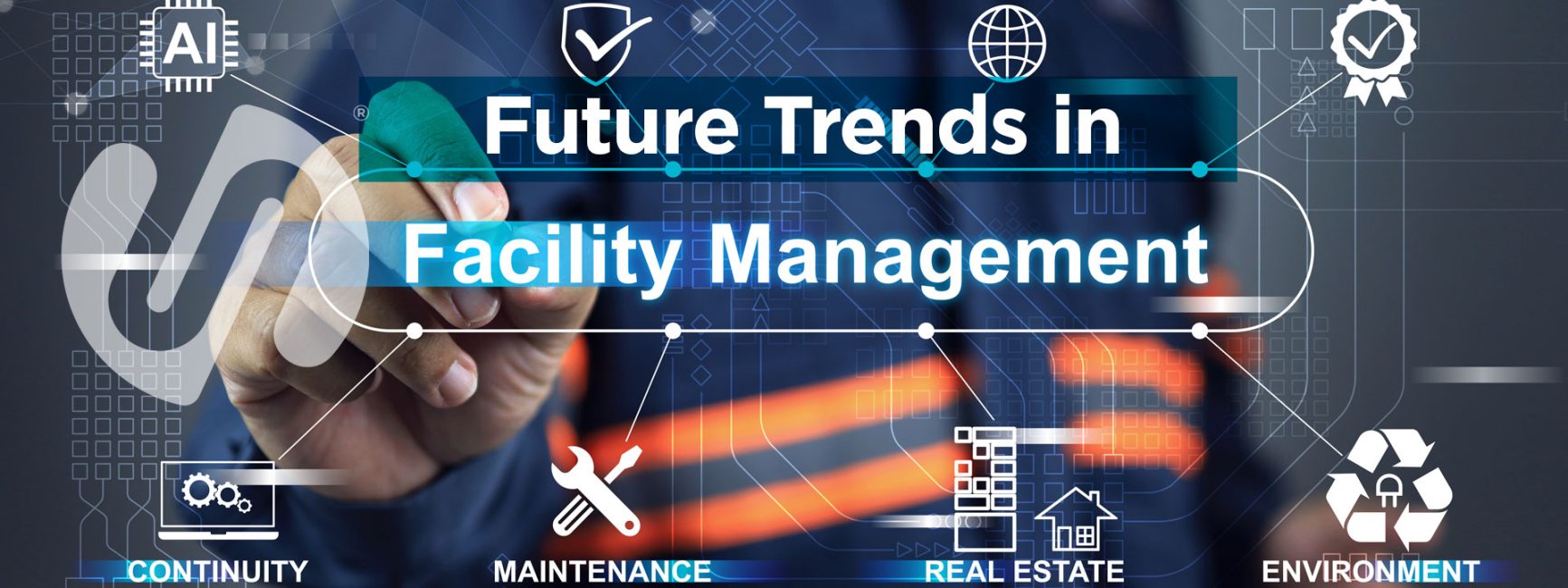Future Trends in Facility Management
Facility management is evolving quickly. Once focused mainly on cleaning, repairs, and keeping buildings functional, it is now a strategic role. Facility managers are expected to create workplaces that are safe, sustainable, and supportive of productivity.
This shift is being driven by three forces: technology, economic pressures, and rising expectations from building users. For cleaning and exterior maintenance companies, understanding these trends is key to staying relevant and competitive.
-
Sustainability and Energy Efficiency
Sustainability is no longer optional. Buildings account for 39% of global carbon emissions, with 28% from their ongoing operations. Rising energy costs and environmental regulation are pushing facilities managers to reduce consumption and invest in green technology. LED lighting, smart HVAC systems, and renewable energy (solar and wind) are already mainstream. Eco-friendly materials and waste reduction initiatives are becoming standard.
Impact on cleaning businesses: Clients will increasingly expect contractors to support their sustainability goals. Using pure water systems, microfibre cloths, low-impact detergents, and energy-efficient equipment demonstrates commitment. Promoting recycling, water conservation, and responsible waste disposal will help win contracts.
-
Automation and Digital Transformation
Facility management is moving towards automation, AI, and real-time data. IoT sensors track equipment health and building performance. AI can schedule repairs and predict faults before they occur. Digital tools are replacing paper-based systems, improving accuracy and collaboration.
Impact on cleaning businesses: Using digital scheduling apps, electronic checklists, and real-time reporting makes operations more efficient and professional. Even simple tools, like sensors that alert staff when a water tank is low, save time and prevent service delays.
-
Proactive, Data-Driven Maintenance
Traditionally, facility management reacted after problems happened. Now, the shift is towards predictive maintenance, using data to forecast issues and fix them before breakdowns occur.
Impact on cleaning businesses: This means moving beyond reactive cleaning. Offering preventative maintenance, monitoring equipment performance, and aligning cleaning schedules with occupancy data or weather patterns creates more value. Sharing performance data with clients builds trust.
-
Workforce Development and Talent Shortage
Technology demands new skills, but there is a talent gap. According to industry sources, there may be a 53% shortfall in the facility management workforce by 2025. Training in automation, sustainability, and energy management is essential. Attracting younger, tech-savvy workers is a growing challenge.
Impact on cleaning businesses: Encourage your teams to upskill in using new equipment and digital tools. Partner with suppliers or training providers to make ongoing learning more affordable and accessible.
-
Crisis Preparedness and Cybersecurity
Extreme weather events, pandemics, and cyber threats have raised the importance of resilience. Emergency planning, evacuation procedures, and business continuity are essential. Cybersecurity is now critical as connected building systems are vulnerable to attack.
Impact on cleaning businesses: Contractors should have clear emergency procedures and ensure insurance covers disruptions. On the digital side, even small firms should use secure passwords, keep software updated, and train staff in basic cybersecurity to protect sensitive client data.
-
Smart Buildings and Occupant Experience
Smart buildings are becoming standard. IoT-enabled systems adjust lighting, heating, ventilation, and even occupancy in real time. They lower costs by optimising energy use. They improve health by monitoring air quality and ventilation.
Impact on cleaning businesses: Cleaning must work alongside these systems. For example, sensors may flag when windows or spaces need cleaning. Integrating cleaning schedules with building management platforms could become an expectation.
-
Hybrid and Flexible Workspaces
Hybrid work is permanent. With employees splitting time between home and office, workplaces need to be adaptable. Booking apps manage shared desks and meeting rooms. Modular furniture and flexible layouts support changing needs.
Impact on cleaning businesses: Cleaning schedules will vary based on occupancy. Flexible contracts and an understanding of hybrid patterns will help retain clients. Preparing spaces for intermittent use, rather than daily use, is becoming more common.
-
Asset Management and Data Centres
Technology-driven organisations are focusing on lifecycle management and data-driven decision-making for their assets. At the same time, data centres are growing rapidly, demanding specialised cleaning, cooling, and power management.
Impact on cleaning businesses: Data centres require strict dust control and regular cleaning to protect equipment. This is a niche but growing opportunity for specialist service contracts.
-
Broader Sustainability Practices
Beyond energy savings, sustainability covers:
- Waste reduction
- Water conservation
- Eco-friendly materials
- Green innovations such as vertical gardens
Impact on cleaning businesses: Window and exterior cleaning firms already align with this by using pure water systems (cutting chemical use) and telescopic poles (reducing reliance on powered access). Highlighting these practices differentiates your service.
-
Regulation and Compliance
Regulation around sustainability, safety, and data protection is increasing. Staying compliant can be costly, but falling behind risks penalties and lost business.
Impact on cleaning businesses: Contractors must keep up with chemical use rules, water disposal regulations, and working-at-height standards. Maintaining proper documentation and using certified procedures strengthens client trust.
Facility management is no longer just about keeping buildings operational. It is becoming a strategic discipline built around sustainability, technology, resilience, and the human experience. For cleaning and exterior maintenance firms, these trends bring both challenges and opportunities. By adopting digital tools, upskilling staff, and embedding sustainability, you position yourself as a valuable partner in the future of facility management. The industry is moving towards collaboration, and those who adapt will thrive.
How Streamline helps Facilities Management companies
Streamline works alongside facilities management teams to keep workplaces, campuses, and public areas clean, safe, and well maintained.
- Tailored to your site
We take the time to understand your environment and design vehicles and systems that solve your specific cleaning challenges.
- Built for the frontline
Our equipment is created with operatives in mind, helping them work more efficiently while reducing strain and improving safety.
- No downtime
When issues arise, we keep you moving. Mobile repairs and hire vehicles mean your teams can stay on schedule without costly delays.
- Training & support
From the first handover to ongoing use, we make sure your staff are confident, trained, and supported every step of the way.
- Trust & partnership
We believe in long-term relationships. You can count on us to deliver what we promise, show up when needed, and support your growth.
Contact us today to find out how we can support your facilities.





